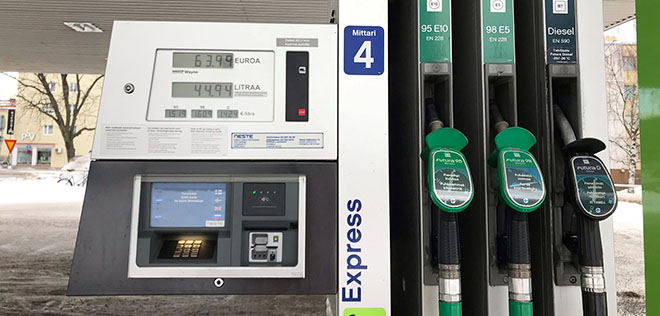Rural low-income households bear a larger share of fuel carbon taxes

An empirical study published in the Journal of Environmental Economics and Management (JEEM) finds that residents in low-income and rural areas are disproportionately affected by increases in fuel carbon taxes. The study reveals that a diesel carbon tax increase was fully passed on to consumer prices in these areas, while in higher-income and urban areas the pass-through was lower.

Researchers from the VATT Institute for Economic Research investigated the distributional effects of Finland’s 2012 tax reform, which increased the carbon tax on diesel by 0.11 euros per liter (0.43 dollars per gallon). In contrast to most previous studies, they find that on average carbon taxes are less than fully passed through to consumer prices. Moreover, they discover that the focus on average effects has masked significant differences across regions and income groups.
“Our study finds that the pass-through of carbon tax hikes to consumer prices is significantly higher in low-income and rural areas than in high-income and urban areas”, says Research Professor Tuomas Kosonen from VATT. “This implies that low-income rural households bear a disproportionate share of the tax burden, while the average price incidence may even be weaker than intended.”
Average pass-through rates ignore differences between regions and income groups
The researchers utilize a large, nationally representative dataset of daily station-level fuel prices and link it to national income register data and administrative data on rural-urban characterizations. Access to these extensive datasets enables the researchers to investigate not only the average effects of diesel carbon tax increases, but also, for the first time, differences in price effects across regions and income groups with high accuracy.
The study reveals considerable heterogeneity in the pass-through rate across the income distribution and the rural-urban continuum. In the highest-income areas, the 11 euro-cent increase in carbon tax per diesel liter leads to a price increase of only 7.6 euro-cents, while the corresponding price increase in the lowest-income areas is 9.1 euro-cents. In the most urban areas, the tax increase leads to a price increase of 7.7 euro-cents, while in the most rural areas the tax increase is fully passed on to consumer prices.
“Based on the study, residents in low-income and rural areas bear a disproportionate share of the carbon tax on diesel”, the researchers say. “To offset adverse distributional effects of fuel carbon taxes, the rural-urban dimension needs to be taken into account when designing compensation schemes.”
Average price incidence weaker than previously estimated
The study finds that carbon taxes on diesel fuel are less than fully passed through to consumer prices on average; The finding differs from the related literature on fuel excise tax pass-through, most of which has documented full
or nearly full pass-through.
“The extent to which carbon taxes are passed on to retail prices is central to their efficacy as a climate policy tool”, says Chief Researcher Marita Laukkanen. “Based on our study, consumer price response to carbon tax increases is weaker than expected in high-income and urban areas. If the price response is weaker than expected, then changes in consumer behavior will be smaller than expected as well”.
Unique difference-in-differences setting
Finland’s 2012 tax reform increased the carbon tax on diesel substantially (by nearly 0.11 euros per liter or approximately 0.43 dollars per gallon). The study exploits this this tax reform and estimate the price effect of the diesel carbon tax by comparing retail diesel and gasoline prices in a difference-in-differences setting.
The researchers employ a large, nationally representative daily station-level dataset on fuel prices faced by private motorists, which they link to national income register data and a rural-urban characterization provided by the Finnish Environment Agency.
“The large increase in the diesel carbon tax and information on fuel prices combined with the characteristics of each station location enable us to discern even small differences in price responses and estimate the tax burden across the income distribution and degrees of urbanization with confidence”, the researchers state.
Journal article (open access):
Jarkko Harju, Tuomas Kosone, Marita Laukkanen ja Kimmo Palanne (2022) The heterogeneous incidence of fuel carbon taxes: Evidence from station-level data. Journal of Environmental Economics and Management,Volume 112.
More details:
Chief researcher Marita Laukkanen, VATT, [email protected], Tel. +358 295 519 429
Research Professor Tuomas Kosonen, VATT, [email protected], Tel. +358 295 519 440
Jarkko Harju
Kimmo Palanne
Marita Laukkanen
Tuomas Kosonen
Energy, climate and environment
Environment, energy and climate policy
Press release
Social security, taxation and inequality
Taxation
Uutiset ja tiedotteet
carbon pricing
carbon taxes
emission limits
energy
energy policy
environment economics
environment policy instruments
environmental taxes
fossil fuels
fuel and car taxation
fuel taxes
greenhouse emissions
taxation

